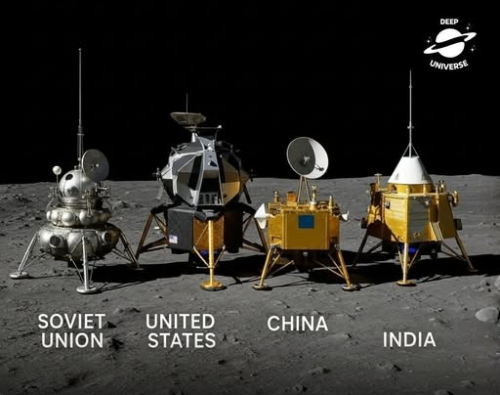In a breathtaking testament to human innovation and determination, only four nations in the history of mankind have achieved one of space exploration’s most challenging feats: a successful soft landing on the Moon. From the height of Cold War rivalry to the modern age of scientific ambition, the Soviet Union, the United States, China, and now India have each carved their names into lunar history.
The journey began in the 1960s when the Soviet Union ignited the Space Race with its pioneering Luna missions. Their early robotic landers shattered technological barriers and became the first proof that soft-landing on another world was possible. Soon after, the United States elevated the race to unprecedented heights, not only landing spacecraft but becoming the first—and still the only—nation to land human beings on the lunar surface. The Apollo missions redefined human potential and remain one of the most iconic achievements in scientific history.
Decades later, a new spacefaring giant emerged. China stunned the world by successfully soft-landing on the far side of the Moon—a region never before touched by human or robotic craft. This breakthrough provided unprecedented access to a mysterious lunar frontier and expanded humanity’s scientific reach.
And in a defining moment for the 21st century, India joined this elite group with its Chandrayaan-3 mission, executing the first-ever soft landing near the Moon’s South Pole. This region, filled with shadows, craters and the potential for lunar ice, represents one of the most scientifically promising—and technically demanding—areas on the Moon. India’s accomplishment was celebrated worldwide as a triumph of engineering, precision, and ambition.
Together, the landers from these four nations form a timeline of human ingenuity—a reminder that exploration is not confined by borders, but fueled by passion and perseverance. As we step into a new era of lunar missions, from bases to resource exploration, these milestones stand as a testament to what humanity can achieve when it refuses to stop reaching for the cosmos.







